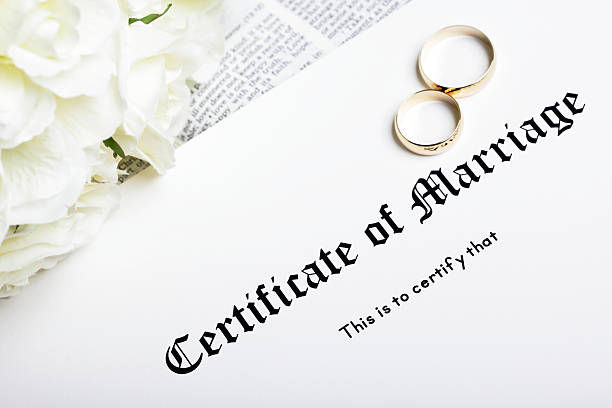Decree-Law No. 35/2025 Of 24 March And The Main Amendments To The Vat Code
- FIO Legal Solutions
- Oct 29, 2025
- 4 min read
Author: Gilana Sousa

Introduction
Decree-Law no. 35/2025 of 24 March introduces significant amendments to the Portuguese Value Added Tax Code (VAT Code), as well as to complementary legislation and to the Personal Income Tax Code, with special focus on the VAT exemption regime applicable to small companies.
The decree partially transposes into Portuguese law Article 1 of Council Directive (EU) 2020/285 of 18 February 2020 and Article 2 of Council Directive (EU) 2022/542 of 5 April 2022, strengthening the alignment of the national regime with the European framework.
Among the VAT Code provisions amended are Articles 20, 24, 40, 53 to 60, and 81 to 83, representing a substantial update, particularly to Article 53 (exemption regime) and Article 58 (termination of the regime).
Reformulation Of Article 53 Of The Civa: Exemption

The main innovation introduced by this Decree-Law is the complete reformulation of Article 53 of the VAT Code, regarding the exemption regime applicable to small companies and self-employed professionals.
a) New eligibility conditions
As from 1 July 2025, access to the regime is reserved for taxable persons having their head office or domicile in Portuguese territory, provided that they:
i. do not carry out export operations or related activities; and
ii. have not exceeded, in the preceding calendar year, a turnover of €15,000 in national territory.
Taxable persons established in other EU Member States may also benefit from the regime, provided that they:
iii. do not exceed a total EU turnover of €100,000;
iv. have notified their Member State of their intention to benefit from the exemption in Portugal, in accordance with a procedure equivalent to Article 58-A; and
v. hold an individual identification number with the suffix “EX” issued by the Member State of establishment.
b) Exclusion of taxable persons from third countries
One of the most relevant changes is the exclusion of taxable persons established in third countries (outside the EU). Until then, it was sufficient to hold a Portuguese tax identification number to benefit from the exemption.
Under the new regime, these taxpayers will no longer be eligible as of July 1, 2025, and must:
i. file a declaration of changes under Article 32 of the VAT Code; and
ii. appoint a fiscal representative in Portuguese territory.
The Portuguese Tax Authority has begun sending formal notices to the taxpayers concerned, warning of the need to regularise their tax situation and of potential fines and additional assessments in cases of non-compliance.
c) Consequences of the exemption regime
Taxable persons falling under Article 53:
i. are not entitled to deduct or claim refunds of input VAT; and
ii. must apply the normal VAT regime in cases of single act transactions or intra-Community supplies of new means of transport.
In practice, this regime remains advantageous for small-scale activities with low VAT-deductible expenses, however, it now requires stricter monitoring of turnover and tax domicile.
Termination Of The Exemption: Amendments To Article 58 Of The Vat Code
Decree-Law no. 35/2025 also amends Article 58 of the VAT Code, clarifying when and how the exemption regime ceases to apply.
a. Termination situations
Taxable persons cease to benefit from the exemption when:
i. in the preceding calendar year, their turnover exceeded €15,000 — VAT becomes due as from 1 January of the following year.
ii. in the current year, their turnover exceeds that limit by more than 25 % (i.e. €18,750) — VAT becomes due from the moment of the excess.
iii. they no longer satisfy any other legal condition of Article 53 — VAT becomes due immediately.
For taxable persons established in other EU Member States:
ii. if their EU-wide turnover exceeds €100,000, either in the previous or the current year, the exemption ceases at the moment of the excess.

b. Deadlines for notification to the Tax Authority
Article 58 sets out the deadlines for submitting a declaration of changes:
i. 15 working days after the end of the calendar year, if the limit was exceeded in the previous year.
ii. 15 working days after the excess occurs, if within the current year.
iii. 15 working days after any other change causing ineligibility.
Taxable persons not established in Portugal but covered by the EU small-companies exemption regime must notify the tax authorities of their Member State.
Practical Implications And Recommendations
The new rules require tighter control of turnover and tax domicile, under penalty of automatic loss of exemption and retroactive application of the normal VAT regime.
It is recommended that:
a. self-employed professionals and small businesses review their VAT status; and
b. taxable persons from third countries begin the process of regularisation and appointment of a fiscal representative without delay.
FiO Legal has a specialised team in Portuguese and EU taxation ready to assist businesses and professionals during the transition to the new VAT regime, ensuring compliance and mitigation of fiscal risks.
Conclusion

Decree-Law no. 35/2025 represents an important step toward harmonising the Portuguese VAT regime with EU directives. However, it introduces significant changes for small operators, particularly non-residents.
Professional support is essential to ensure compliance with the new rules and avoid penalties.
By Gilana Sousa




